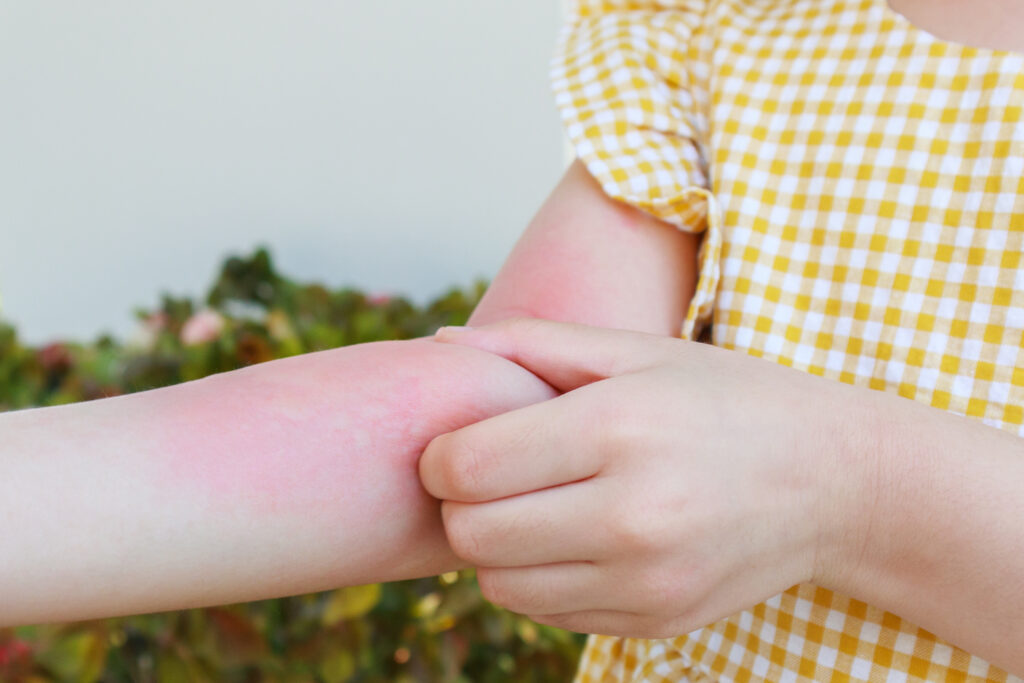Childhood eczema, also known as atopic dermatitis, can be a challenging condition for both children and parents alike. We’ll explore what childhood eczema is, its causes, symptoms, and most importantly, what you can do to manage and alleviate your child’s discomfort.
Understanding Childhood Eczema:
Eczema is a chronic inflammatory skin condition characterized by red, itchy, and often, inflamed skin. While it can affect individuals of all ages, it commonly manifests in childhood. Genetics, environmental factors, and a compromised skin barrier are believed to contribute to its development.
Symptoms of childhood eczema may vary from mild to severe and can include:
1. Intense itching
2. Red or brownish patches of skin
3. Dry, scaly, or cracked skin
4. Small, raised bumps, which may leak fluid when scratched
5. Thickened, rough skin over time
Managing Childhood Eczema:
While there is currently no cure for eczema, there are various strategies and treatments available to manage symptoms effectively. The recommends the following approaches:
1. Moisturize Regularly: Keeping the skin well-hydrated is crucial in managing eczema. Opt for fragrance-free, hypoallergenic moisturizers and apply them liberally, especially after bathing, to lock in moisture.
2. Identify and Avoid Triggers: Certain factors can exacerbate eczema symptoms. These triggers can vary from person to person but may include irritants like harsh soaps, allergens like dust mites or pet dander, and environmental factors like extreme temperatures.
3. Gentle Skincare Routine: Use mild, fragrance-free cleansers and detergents. Avoid hot baths or showers, as they can strip the skin of its natural oils. Instead, opt for lukewarm water and pat the skin dry gently with a soft towel.
4. Topical Treatments: In cases of moderate to severe eczema, topical corticosteroids or immunomodulators may be prescribed by a healthcare professional to reduce inflammation and relieve itching. It’s essential to follow the prescribed regimen and use these medications as directed.
5. Maintain a Healthy Lifestyle: Encourage your child to maintain a balanced diet rich in fruits, vegetables, and omega-3 fatty acids, which can help support overall skin health. Additionally, stress management techniques and regular exercise can contribute to improved well-being.
6. Seek Professional Guidance: Consult with a pediatrician or dermatologist, like Dr. Pawan Sulaniya, for personalized treatment plans and ongoing support. They can provide invaluable guidance tailored to your child’s specific needs and monitor their progress over time.
Conclusion:
Childhood eczema can significantly impact a child’s quality of life, but with the right approach and guidance from healthcare professionals like Dr. Pawan Sulaniya, it’s possible to manage symptoms effectively and improve overall skin health. By implementing strategies to moisturize, identify triggers, and adhere to gentle skincare routines, parents can help alleviate their child’s discomfort and promote a better quality of life.
Remember, every child is unique, and what works for one may not work for another. Patience, consistency, and open communication with healthcare providers are key in navigating the journey towards managing childhood eczema successfully.






Comments